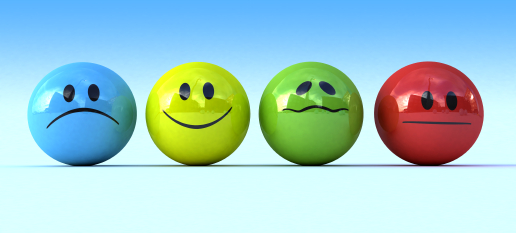This is a guest post contributed by Angelita Williams.
[tweetmeme] If you are a frequent reader of Mission to Learn, you probably share the ideal that learning is an activity in which we engage throughout our entire lives. Even though we may hold fast to this ideal, it’s disheartening to see how many people act as if learning ends once our formal education draws to a close.
We receive that diploma, and it’s on to getting a job, building wealth, and maybe settling down and having children. Of course, none of these milestones are undesirable in and of themselves, but what exasperates me is the ultimate goal that drives them: the pursuit of happiness.
If you take a look at most best-seller lists on book Web sites like Amazon, you’ll be sure to find something of the self-help variety. In the vein of nearly all how-to books, they promise you the keys to happiness if you follow certain steps or guidelines; they purport that this notion of “happiness” is precisely what we must all be aiming for.
One popular book and blog that comes to mind is Gretchen Rubin’s The Happiness Project. The subtitle basically says it all: Why I Spent a Year Trying to Sing in the Morning, Clean My Closets, Fight Right, Read Aristotle, and Generally Have More Fun. Without going into the details of the book, Rubin’s aim is more perkiness than happiness; like most self-help guides, it endeavors to make us feel “happier” using short cuts
So, what’s the alternative?
Having become disillusioned with the self-help drivel trafficked at bookstores and promoted online, I was pleasantly surprised to come across a recent Guardian opinion editorial that calls into question the presumptions underlying the pursuit of happiness as it is typically understood.
In the editorial, Adam Phillips, a child psychologist and literary critic, describes what we may lose when we put all our eggs in the pursuit-of-happiness basket. My favorite part about the piece is that Phillips proposes a healthier, more rewarding alternative to seeking happiness at all costs. Phillips notes:
So by way of conclusion I want to suggest that a right to the pursuit of happiness is asserted when a capacity for absorption has been sabotaged, when there is a loss of confidence in people’s passions. Happiness becomes important when the possibility for absorption is under threat. That the child does not want to be happy—or perhaps, more exactly, the child doesn’t want only to be happy—the child wants first to be safe, and then to be absorbed. There are, for example, only two reasons for children to go to school—apart, that is, from acquiring the werewithal to earn a living: to make friends, and to see if they can find something of absorbing interest to themselves.
Absorption is the key. When we are truly learning, when we have committed ourselves to learning―especially beyond the realm of traditional education, where learning becomes an active, voluntary experience instead of a required one―we are participating in mindful absorption. While not every subject or concept will hold our interests, continually searching for this absorption, whether it’s by reading a book, developing a software program, learning an instrument, finding a challenge at work, or sharing a powerful idea with friends and colleagues, is what―in my mind―gives our lives purpose.
So, next time you are lured by the holy grail of happiness, consider picking up something that keeps you absorbed. Try learning.
By-line:
This guest post is contributed by Angelita Williams, who writes on the topics of online courses. She welcomes your comments at her email Id: angelita.williams7 @gmail.com.





